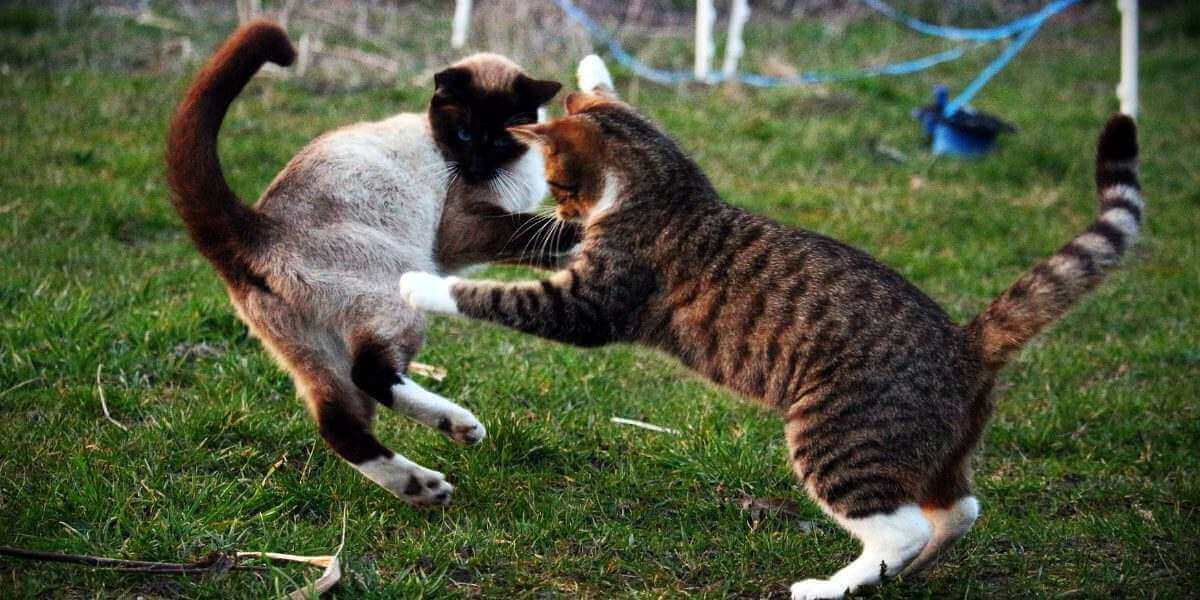
When you love sharing your home with one cat, it’s hard to resist adding even more feline friends to the family. You have to remember, however, that your cat might not feel the same.
Cats are social creatures, but they don’t all get along. It’s not uncommon for cats to aggressively resist cohabiting with other members of their species. Even cats that love humans and get along with dogs, birds, rodents, and other animals might not appreciate another cat in the family.
If your cat does not get along with other cats, it can be disappointing. It’ll help, however, to understand why your cat feels the way she does. With a little more insider knowledge, you can be more empathetic to her feelings, and there’s even a chance to change her mind.
Remember, however, that you must do what’s best for your current cat. If she is adamant about not accepting other cats, you have no choice but to accept her decision.
Here are a few common reasons why some cats do not like other cats.
1. Lack of Socialization
The most common reason why an adult cat grows up to not get along with other cats is that they missed out on vital socialization during kittenhood. All kittens go through a phase where they are the most receptive to new experiences.
This happens from 2-7 weeks old for most kittens and can sometimes extend to around 14 weeks old. During this important window, the developing brain is more likely to form permanent associations and attachments.
This means that the lessons kittens learn and the experiences they encounter will stick with them through adulthood. For example, a kitten that spends those vital weeks enjoying time with humans, dogs, and other cats is likely to grow up to continue enjoying those experiences.
When it comes to other cats, a kitten that grows up with her littermates and spends time with other cats has a good chance of being friendly toward other felines in adulthood. Many cats that end up hating other cats were separated from their littermates at too early an age.
With no early positive associations to fall back on, the cat could become resistant to those new experiences after that window of socialization closes. Fear of the unknown is a powerful influence.
We must also remember that socialization goes both ways. The key word in the above scenario is “positive.” Even if a kitten grows up around other cats, if the general experience is negative, or if they endure something traumatic, like being attacked by another cat, that memory will remain with them and can influence their behavior long into the future.
It is possible for an adult cat to form new associations and improve on their social skills. It’s typically harder, however, and can take more time and patience.
2. Protecting Their Routine
Your cat might jump up and do random sprints down the hallway or attack your ankles out of nowhere, but felines aren’t generally spontaneous creatures. They thrive on predictably and routine. Having a set schedule helps them feel more confident and in control of their circumstances. Altering a set routine in any way could provoke a negative reaction from a sensitive cat.
There are few events more distressing than having a stranger intrude on your life. For your cat, a new pet entering the home disrupts every routine they’ve grown to value. From how and when they’re fed, how much attention they receive, and even their freedom to nap wherever they want—a new cat changes everything.
There are certainly some cats that can accept change and move on. Others, however, find it extremely distressing. If your cat seems to hate other cats, it could be that they simply hate that their routine and comfort is put at risk by a newcomer.
3. Protecting Their Territory and Resources
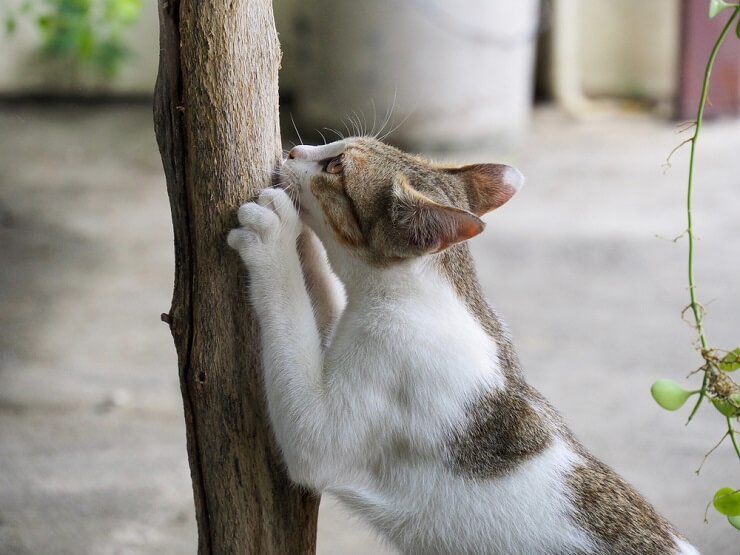
Along with routine, cats value territory. As territorial creatures, cats typically spend all their lives inside what they deem to be their geographical boundaries. Even feral cats rarely venture too far from what they consider to be their home turf. It is possible for cats to share territories. Many, however, will resist any cat (and sometimes human or other animal) that attempts to intrude.
Territory is especially important to cats that are not neutered or spayed. In many cases, it’s simply impossible for two intact (not neutered) male cats to share close quarters. The same can also be true for intact females. Their hormones prevent them from living in peace.
Besides physical area, cats can also be socially territorial. This means they become possessive of the people they care about. It’s unclear whether cats can feel real jealousy, but nevertheless, their territorial feelings toward a favorite human can cause significant strife when another cat enters the home.
Cats have similar feelings about food and water. Sharing a territory means splitting those vital resources. Of course, you ensure all your pets have everything they need. Adding another cat doesn’t mean the first cat gets less food, but a worried feline might not be convinced.
4. Personality Differences
In all probability, your cat has no say in the people and animals that enter their home. We can try to pick new pets that we think will mesh with the current family members, but we don’t always get it right. Feline personalities vary just as much as human personalities. It’s unfair to assume your cat can be best buds with any personality type.
Sometimes cats only hate certain other cats. A sensitive feline that values alone time, for example, probably won’t take to a rambunctious extrovert. They might feel differently about a cat that also appreciates the quiet life.
Matching personalities isn’t easy. Your cat can’t sit down and interview prospective housemates, and you can’t ask them what traits they’re looking for in a potential friend. If you pick wrong, it can seem like your cat hates all cats, when in fact, they only hate the cat you chose.
5. Unrelated Stress
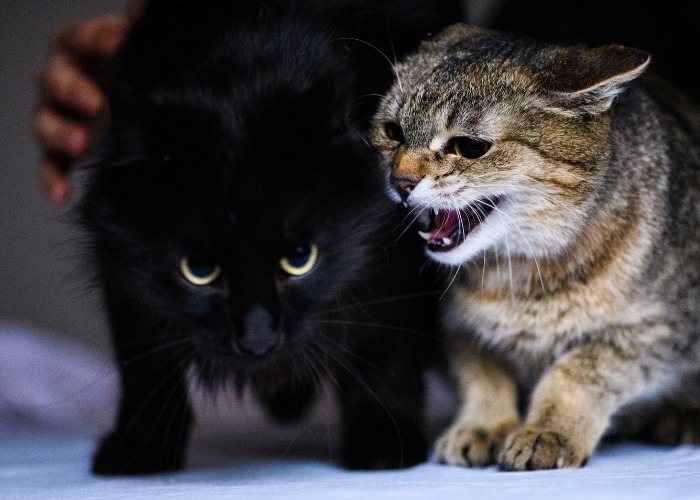
Besides illness, stress can also affect a cat’s behavior
Before you accuse your cat of being unsocial, consider what else is going on with them. In some cases, cats start acting out around other cats because of completely unrelated situations. A good example of this is when a cat is feeling ill. No one is happy and friendly when they don’t feel well. If your cat is sick or injured, it’s understandable that they’d act aggressively toward an unfamiliar feline.
Besides illness, stress can also affect a cat’s behavior. Introducing a new pet is stressful in itself, but if something else is going on, there’s practically no chance of a positive experience. Maybe your cat has been feeling off since you started working late. Or perhaps you changed their food or litter.
Unrelated stress is often the culprit when two cats that previously got along are suddenly picking fights.
Is It Possible To Change a Cat’s Feelings About Other Cats?
Whether or not you can realistically help your cat accept other felines will depend on the reason behind their discomfort. First, spaying or neutering could be the key to a more peaceful household.
If that’s not it, slow introductions coupled with positive reinforcement can help two cats get along. They might never be cuddle buddies, but you might be able to achieve some level of mutual tolerance. If your cat continues to resist, talking to a feline behaviorist can help the situation.

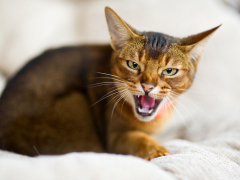
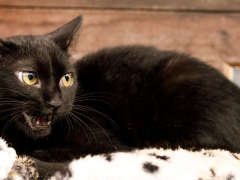

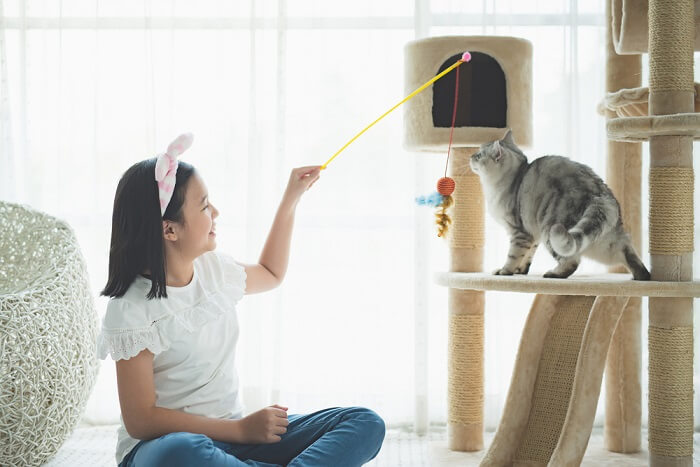
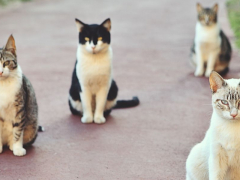
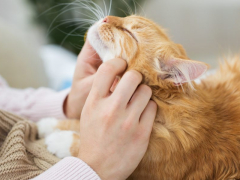

Can you please send me a free cat care guide.
Thank you
Hello Mary! Which guide are you looking for? You can get our day-to-day care guide by clicking the button and entering your email address. The guide will be sent to your email inbox.
I need some help since i have lived where i am now my cat hasnt gotten along with any of the other cats that we have. its been 6 years. i want her to feel like a part of the family but she distances herself from the other cats. im not sure what to do…
Aww, I’m sorry your cat is still not feeling comfortable with the other cats in the house! Have you taken the steps outlined in this article?